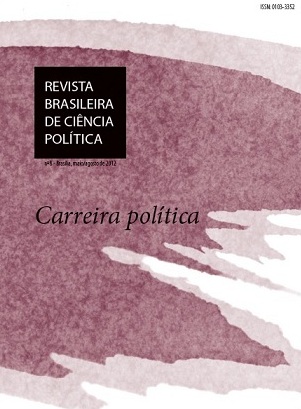As lógicas do recrutamento político
Resumo
Resumo
A análise da posição social e da origem das lideranças partidárias revela que os mecanismos atuais de recrutamento político tendem a favorecer as classes superiores da sociedade, embora cada partido privilegie a ascensão de frações distintas dessas classes. As oposições entre partidos que estruturam o funcionamento do campo político mostram-se, assim, como a duplicação (por outro lado, relativamente autônoma) da estruturação interna das classes superiores. As diferenças que separam, por um lado, os dirigentes do Partido Comunista Francês (PCF) e do Partido Socialista Francês (PS) e, por outro, os da Coalizão pela República (RPR) e da União pela Democracia Francesa (UDF) são, por exemplo, fortemente marcadas pela oposição entre os polos intelectual e econômico dessas classes. Do mesmo modo, quando buscam em outros espaços, o PCF e PS recrutam sobretudo agentes que ocupam as posições inferiores-dominadas, ao passo que a UDF e a RPR privilegiam o recrutamento de agentes que se encontram nas posições superiores-dominantes. Esse jogo de homologias permite também compreender a lógica do recrutamento das classes médias e popular e formular algumas hipóteses sobre os mecanismos da influência e da representação políticas.
Palavras chave: recrutamento político; classes sociais; partidos.
Abstract
Analysis of the original social positions of party leaders shows that the present mechanisms of political recruitment tend to favour the upper classes of society, but that each party encourages the ascent of different fractions of these classes. The contrasts between parties which structure the functioning of the political spectrum thus appear to duplicate (quite independently moreover) the internal structures of the upper classes. The differences between the leaders of the PCF and PS on one hand, and the RPR and UDF on the other, bear a strong resemblance, for example, to the contrast between the intellectual and economic poles of these classes. Similarly, when these parties recruit in other strata, the PCF and PS tend to recruit officials in lower-dominated positions, whereas the UDF and RPR prefer to recruit officials in senior-dominant positions. This pattern of homologies also explains the logic behind recruitment aimed at the middle and popular classes, and allows a few assumptions to be made concerning the mechanism of political influence and representation.
Key words: political recruitment; social classes; political parties.


